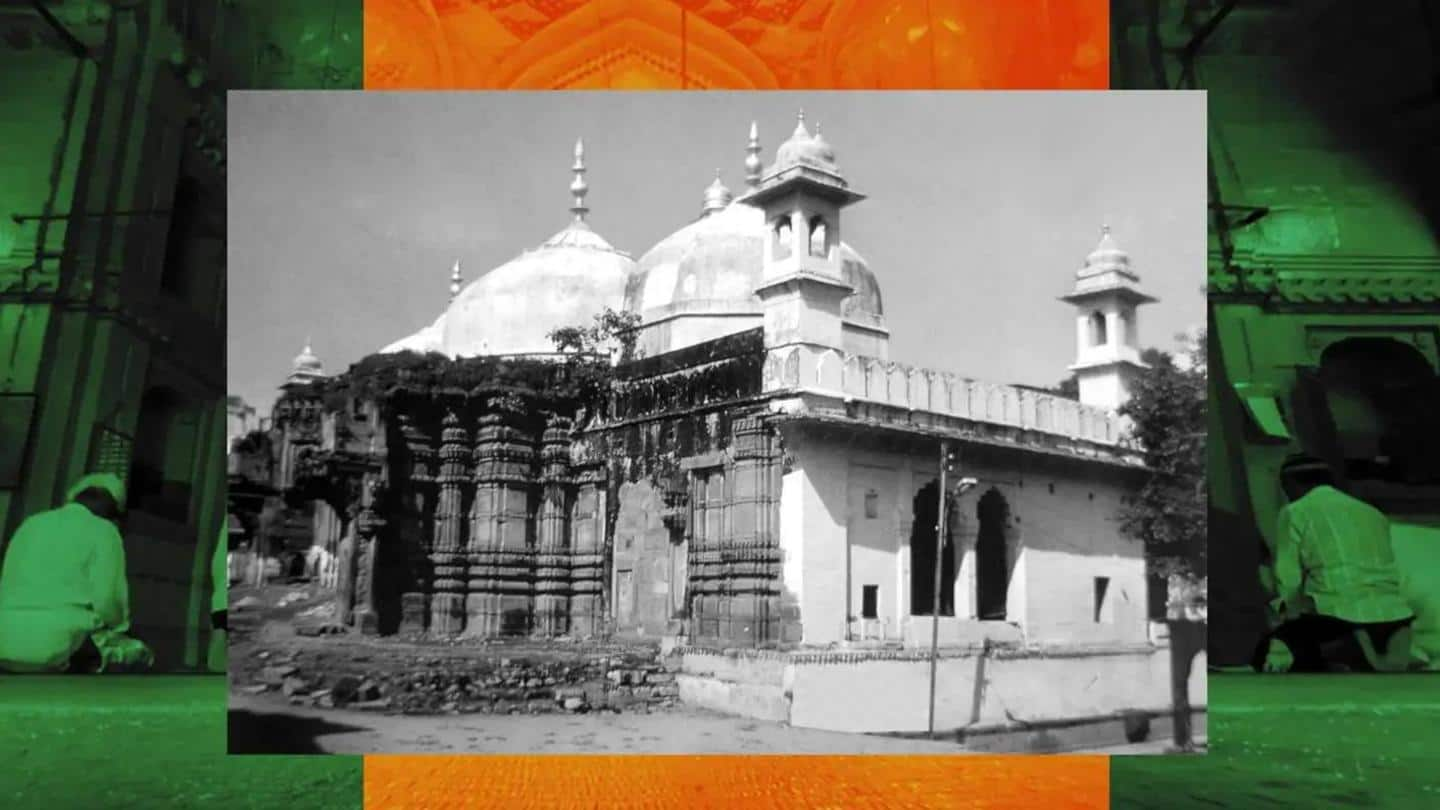
Varanasi: Ancient swastikas discovered near Gyanvapi mosque during survey
What's the story
During a court-ordered survey and videography exercise in Varanasi's Kashi Vishwanath-Gyanvapi Masjid complex, timeworn traces of two swastikas (sacred Hindu symbol) were reportedly discovered near the mosque.
The exercise was halted on Saturday due to protests by local Muslims.
However, videographers of the court commissioner's team said they had come across two faded but legible swastikas outside the Gyanvapi Masjid during the survey.
Context
Why does this story matter?
The survey is being carried out on the Varanasi district court's orders.
A petition was filed by five Delhi-based women, seeking access to Hindu deities—whose idols are located near Gyanvapi Masjid's outer wall.
The court subsequently ordered the survey/videography of the complex—scheduled for Friday and Saturday.
While the exercise was conducted on Friday, the court commissioner-led team was denied entry over protests on Saturday.
Details
Mosque management's sought replacement of court commissioner
As the team was denied entry, the Varanasi court on Saturday reportedly ordered the survey of areas outside Gyanvapi Masjid.
Meanwhile, Subhash Nandan Chaturvedi—the Delhi-based petitioners' lawyer—told India Today the mosque's survey can't take place until the court hears and rules on another related plea.
To recall, the mosque management committee had requested the appointment of a different court commissioner to monitor the exercise.
Status
What is the current situation?
A large police force was reportedly deployed in the sensitive area near the mosque after the court-appointed commissioner and a group of lawyers inspected the complex on Friday.
Meanwhile, according to one of the Delhi-based plaintiffs, Rekha Pathak, the court will again hear the case on Monday, whereby they will seek a precise order to conduct the Gyanvapi mosque's videography and a survey.
History
What is the Gyanvapi mosque case all about?
The Gyanvapi mosque case dates back to 1991 when a slew of petitions—including one by Varanasi-based lawyer, Vijay Shankar Rastogi—was filed in the Varanasi court.
The plaintiffs were local priests who wanted to worship at Gyanvapi Masjid.
The petitioners claimed that Mughal ruler Aurangzeb ordered the Gyanvapi Masjid to be built in the 17th century by demolishing a portion of the Kashi Vishwanath Mandir.
Context
What all has happened in the matter so far?
The 1991 Gyanvapi case was on hold for several years after the Allahabad High Court suspended the hearing.
However, the case resurfaced in 2019 following the Supreme Court's decision in the Babri Masjid-Ram Janmabhoomi case.
Rastogi requested an archaeological survey of the Gyanvapi Masjid in 2019.
Consequently, the court agreed and directed the Archaeological Survey of India to inspect the mosque in April 2021.
Logic
Why did Allahabad High Court suspend hearing?
The Allahabad HC's decision was based on the Places of Worship (Special Provisions) Act, 1991.
The law forbids any changes to a place of worship's religious character from what it was on August 15, 1947.
The SC has also consistently upheld the law while granting an exception in the Babri Masjid-Ram Janmabhoomi case, stating that the law would apply in all the other cases.
Details
Delhi-based petitioners seek yearlong access to Shringar Gauri
To note, the survey/videography of the Gyanvapi mosque ordered by the Varanasi court was reportedly in relation to the petition by the group of Delhi-based women, and not Rastogi's plea.
The women had sought unrestricted, yearlong access to Maa Shringar Gauri, located behind the mosque's western wall.
Currently, devotees are allowed to worship Shringar Gauri there only on the fourth day of Chaitra Navratra.